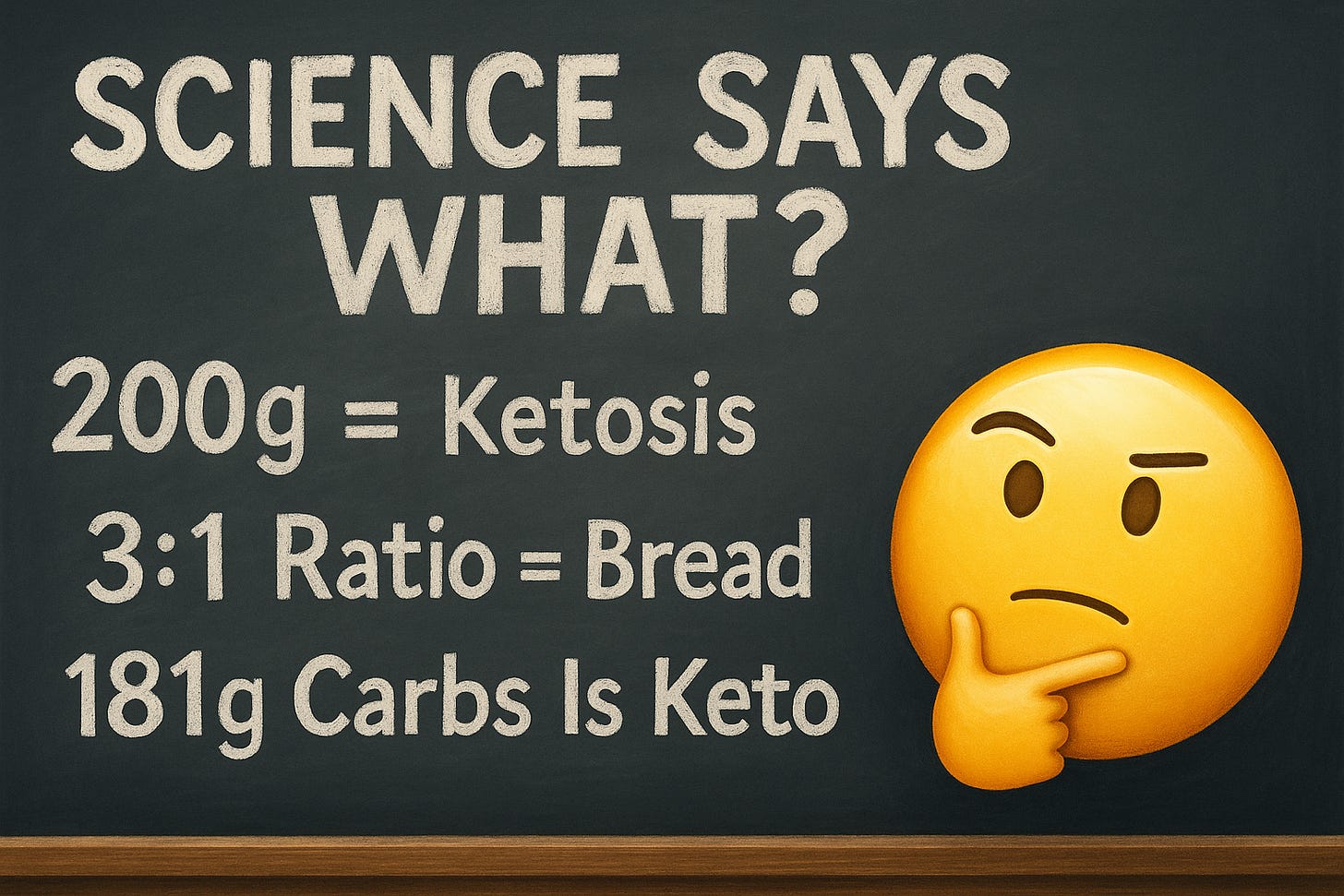When ‘Keto’ = Bread (Nuance Nibble)
Turns out 181 grams of carbs still counts as keto—if your math’s bad enough. Peer review didn’t catch the spin, but you will.
*Author’s Note: “Nuance Nibbles” is a new format here on StayCurious Metabolism—quick, ~3-minute reads that aim to highlight a single important idea. They’ll appear spontaneously and in addition to (not in place of) our regular long-form letters. Nuance Nibbles will be free for all subscribers.
A recent paper titled “Ketogenic Diets are Associated with Elevated Risk for All Cancers” has been making the rounds. Grab your popcorn (or pork rinds), because this one’s more comedy than controversy.
The first major red flag:
Their ‘most ketogenic’ group was eating 181 grams of carbohydrates — roughly equivalent to 12 slices of bread — per day.
In other words, their “most ketogenic” group wasn’t ketogenic at all. That alone undermines the central claim of the paper. But it gets better...
They employed something called the Dietary Ketogenic Ratio (DKR)—an unconventional and rather nonsensical formula that assigns a score from 0 to 9, estimating a diet’s potential to induce ketogenesis. Higher scores are meant to indicate more ketogenic diets. But in their analysis, any DKR score above 0.44 yielded statistically non-significant results—meaning 95% of their DKR score range produced no meaningful signal.
Furthermore, according to this logic, a high-carb diet with 200 grams of carbohydrates could score similarly to a therapeutic ketogenic diet (e.g., 3:1 or 4:1 ratios, with 87–90% of calories from fat).
Even if their method was sound (and it wasn’t), it still puts 200g of carbs and medical keto in the same bucket.
That’s not just a mild misdirection—that’s blindfold-you-and-roll-you-down-Niagara-Falls misleading.
And finally, the data collection methodology: the DKR was calculated using macronutrient data based on a two-day retrospective dietary recall. Participants were asked to remember what they ate over two days, and that data was then processed through a non-standard equation, producing mostly non-significant results. And all of this in a study population where even the “lowest-carb” group was still consuming 181 grams of carbs per day.
The Point: Most of you already know that peer review isn’t the same as proof. But this paper shows just how far a misleading title and a loose methodology can take a claim.
*Author’s Note: I will be contacting the journal’s Editor-in-Chief with my critiques and sharing this post. Leave your thoughts in a comment the Editor-in-Chief will hopefully see it.
Call To Action: If it was helpful (or at least entertaining), consider sharing it—or let me know your thoughts in the comments. You can also subscribe: either for free or as a premium member. At StayCurious Metabolism, we tackle the latest and most fascinating science in metabolic health—with nuance, practical insights, and just enough humor to keep things digestible.
Finally, if you liked this post and want a sample of the regular long-form letters, check out these samples:







1000% agree Nick. I have a close family member reversing stage 4 cancer with ketogenic diet being the main protocol. It's beyond me how this study could even be written, let alone published
When my wife was diagnosed with breast cancer, she immediately went on. Therapeutic, ketogenic diet. The surgeon said she was, “The fastest healing patient he had ever seen.” Today she’s cancer free. Shame on these people for false, nonsensical, fear mongering! Thank you Nick for pointing out how flawed this paper is. Lives depend on people knowing the truth!